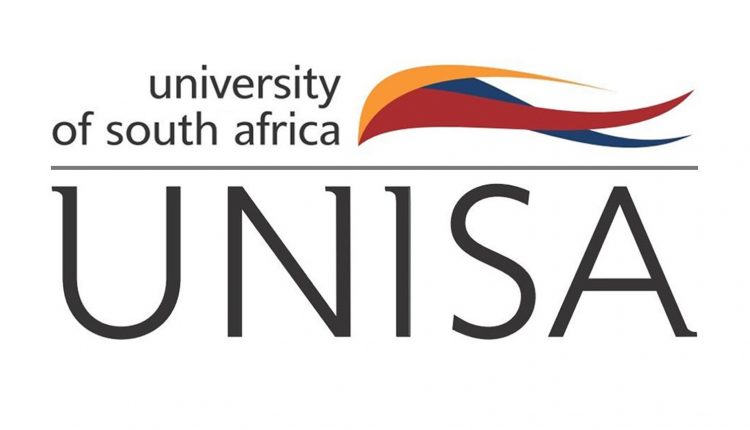University of South Africa: Media freedom under renewed threat
The lecture is held each year in remembrance of 19 October 1977, when the apartheid government banned The World, Weekend World and other publications and organisations in what came to be known as Black Wednesday.
Prof Onkgopotse JJ Tabane delivered this year’s lecture
The lecture honours Percy Qoboza, the then editor of The World and a critic of the apartheid regime, and serves as a reflection on media freedom.
This year, the lecture was delivered by renowned broadcaster and Director: Communication and Marketing at Unisa’s Graduate School of Business Leadership, Prof Onkgopotse JJ Tabane.
Click here to watch a recording of the lecture.
A global phenomenon
Quoting recent journal articles, Tabane said that media freedom is in decline the world over and that this is a symptom of the breakdown of other institutions that are meant to support democracy.
“Percy Qoboza,” said Tabane, “is a name worth remembering as we assess how far we have come given this latter-day reality.” He said that this is so because Qoboza not only pursued the ideals of freedom of expression, but he did so
Thokozile Qoboza, daughter of Percy, delivered a message of thanks on behalf of the family.
when evoking the freedom of the press was not the fashionable to do so. “That was a time when it resulted in certain death for many, torture and imprisonment, yet he stood steadfastly in his various editorial roles through the years,” continued Tabane. “I also pay special tribute to the Qoboza family who must be proud to have a Qoboza who left a blazing trail for all of us to emulate.”
Turning to the present, Tabane said: “Today, while there are many journalists of courage, the kind of persistent activism that Qoboza embodied is generally muted and, increasingly, is suffering a disappearing fate. All sorts of offensive are launched against the media from all fronts.”
Continuing in the spirit of Qoboza
Tabane urged attendees to do deep introspection about how the media is picking up Qoboza’s spear. He said that there is no gainsaying that in the South African context, the post-1994 era is a hundred times better in protecting the rights of the media to ply their trade. “However,” he continued, “we need not be naïve about the fact that this fight for freedom of the press still has to be fought for almost daily. In other words, this freedom is not free.”
In a message of support, Gauteng Premier Panyaza Lesufi said that he, personally, also observed Black Wednesday each year as a media activist, and bemoaned the fact that government officials were not attending the lecture.
After exploring the state of media freedom under successive leaders since the advent of democracy in South Africa, Tabane turned his attention to the media industry itself. “Our media environment is ailing and is not conducive for defending this freedom,” he contended, mentioning as symptoms toxic work environments, interference by politicians, business people and owners in the newsroom, violation of editorial policies, sexual harassment and cases of gender-based violence, and juniorisation of the newsrooms affecting quality and integrity of stories.
“All these incidents,” said Tabane, “give journalism a very bad name, a discredited stature and serves as a weapon on those who want to weaponise this conduct – we increasingly cannot argue that these are exceptions. They have become a lived reality that increasingly spoils the reputation of the Fourth Estate.”
Leading by example
Returning to the great man honoured by the lecture, Tabane said: “This brings us back to Percy Qoboza, who himself was fiercely independent. Some of his peers tell me that they were very frustrated with him as he was impossible to influence when it comes to what he was going to editorialise.” He continued: “It is this spirit that we must infuse in our media today, a spirit of incorruptibility and leading by example. Sadly, and in many more ways than imaginable, the media has become its own worst enemy in the protection of the freedom of the press.”
Antoinette Slabbert, Chairperson of National Press Club, provided an overview of the life and achievements of Percy Qoboza.
In conclusion, Tabane said: “In the name of media freedom fighters like Percy Qoboza, the media today has to resort to being extra vigilant, even in jurisdictions such as South Africa, where there are Constitutional Protections in place to assure the freedom of the media.” This, said Tabane, should serve as a warning to those politicians who have an appetite to suppress freedom. “I, in the name of Nat Nakasa, Phindi Xaba and Percy Qoboza, will use my every breath to fight oppressors of media freedom to the end, because this freedom was not free. Percy Qoboza and many others had to pay a high price and had to sacrifice so much for this liberty. Long live the spirit of Percy Qoboza, long live!”
Joining the event virtually, panellists Hopewell Chin’ono, a Zimbabwean journalist, Boineelo Hardy, broadcaster and former athlete from Botswana, Moleme Tshweu, Current Affairs Twitter Spaces host, and Crystal Orderson, EWN News Editor, responded thoughtfully and incisively to Tabane’s lecture.
Prof Siyasanga Tyali, Acting Director of the School of Arts, delivered the opening address. Proceedings were expertly guided by Mosidi Mokgele, General Manager of the National Press Club, and at the conclusion of the event the vote of thanks was presented by Khanya Mahlare, Executive Director: Department of Institutional Advancement.

